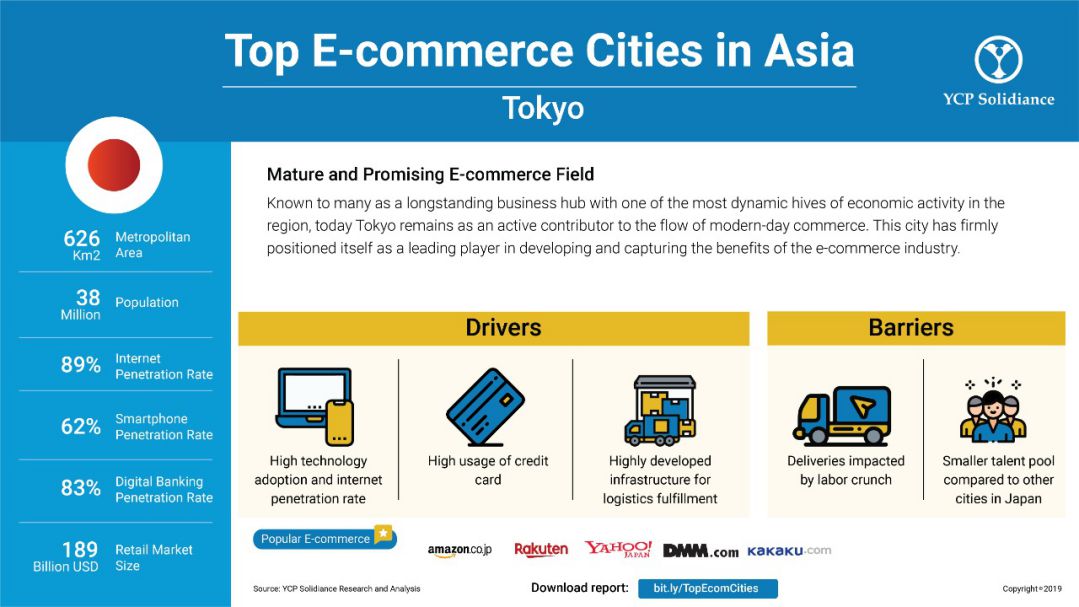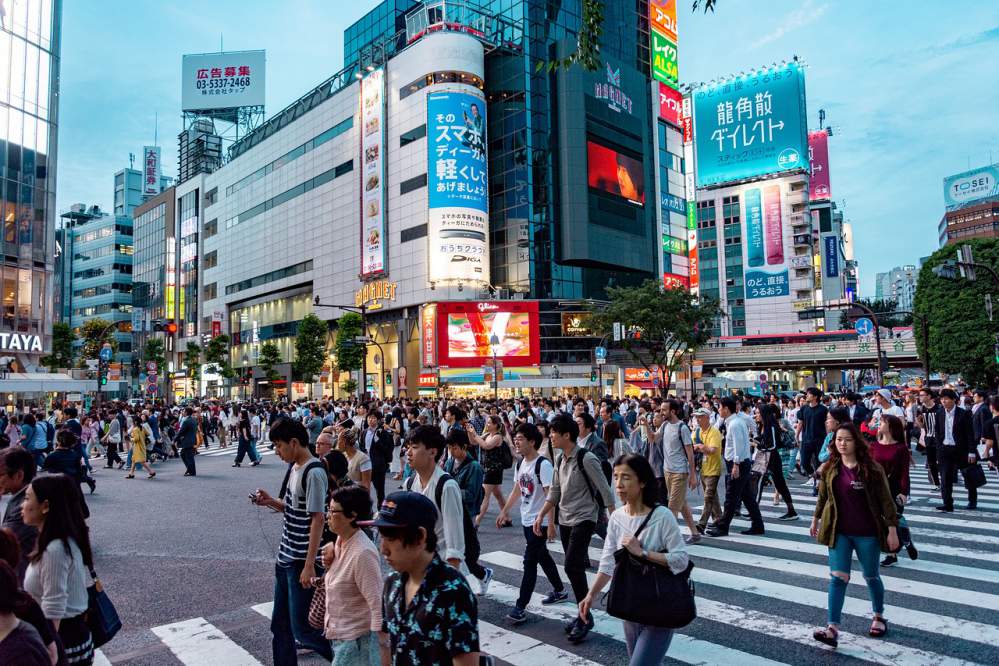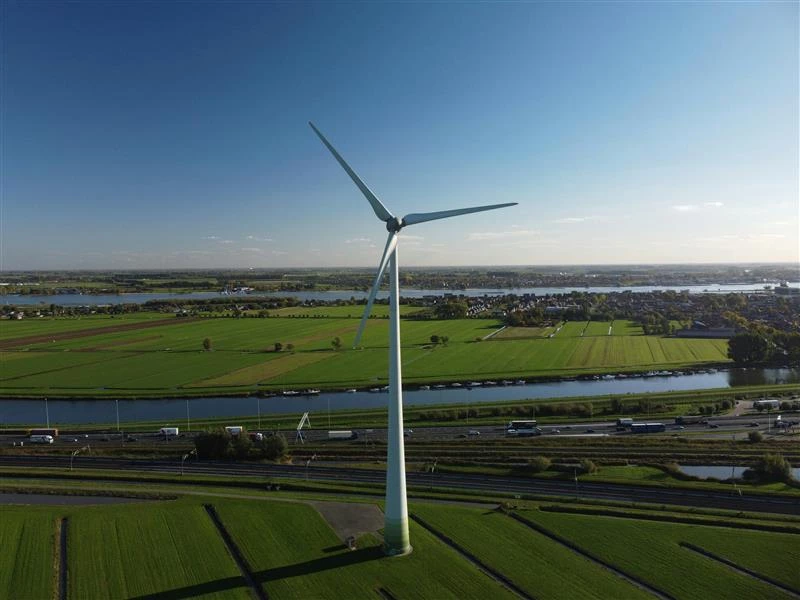Concerns about labor shortages and talent availability may also pose challenges for new start-ups and existing e-commerce businesses in Tokyo. The strengthening economy with a shrinking working-age population in a rapidly aging society force companies to take unorthodox steps to alleviate labor shortages. Moreover, Tokyo has smaller talent pool compared to other cities in Japan, and English is not widely spoken which is limiting talent opportunities to scale existing resources. E-commerce also grows slower in the city due to its consumers' preference on offline shopping.
Based on our latest report, "Top E-commerce Cities in Asia", Tokyo is included in the top e-commerce cities in Asia, along with other cities, such as Jakarta, Shanghai, Singapore, and many more,. The report features e-commerce landscape in Asia and how it has quickly adapted to global trends. The report defined an “e-commerce city” here as an urban city with interconnected infrastructure which makes up an e-commerce ecosystem that helps it thrive.
Though opportunities are present in troves, the room to compete is gradually closing in as large corporations are constantly innovating on the go. The cross-border transaction is relatively low in the region, presenting large opportunities for local players to serve the majority of Japanese consumers while limiting the presence of foreign platforms.
Tokyo is a megacity with an attractive e-commerce consumer base. Known to many as a longstanding business hub with one of the most dynamic hives of economic activity in the region, today Tokyo remains as an active contributor to the flow of modern-day commerce. This city has firmly positioned itself as a leading player in developing and capturing the benefits of the e-commerce industry, with its USD 189 million retail market size. 
According to our report, the world's e-commerce industry has continued to witness exponential growth, with an astounding USD 2.86 trillion in 2018 and are projected to grow further to USD 6 trillion in 2022. Not to mention the Asia Pacific market which had a 35% economic growth rate in 2018 and USD 1.8 trillion retail e-commerce sales, positioning Asia as a clear leader in achieving the target of attaining one-fourth of global e-commerce share by 2023.
Tokyo and other global cities can improve their e-commerce ecosystem through the proposed framework in this paper, consisting 5 key building blocks for startup ecosystem to reach its full potential, including: stable and predictable regulatory environments; adequate talent; market readiness and robust infrastructure; funding to scale up the business, and global culture to empower innovative ideas.
Download the full report on Top E-Commerce Cities in Asia.







